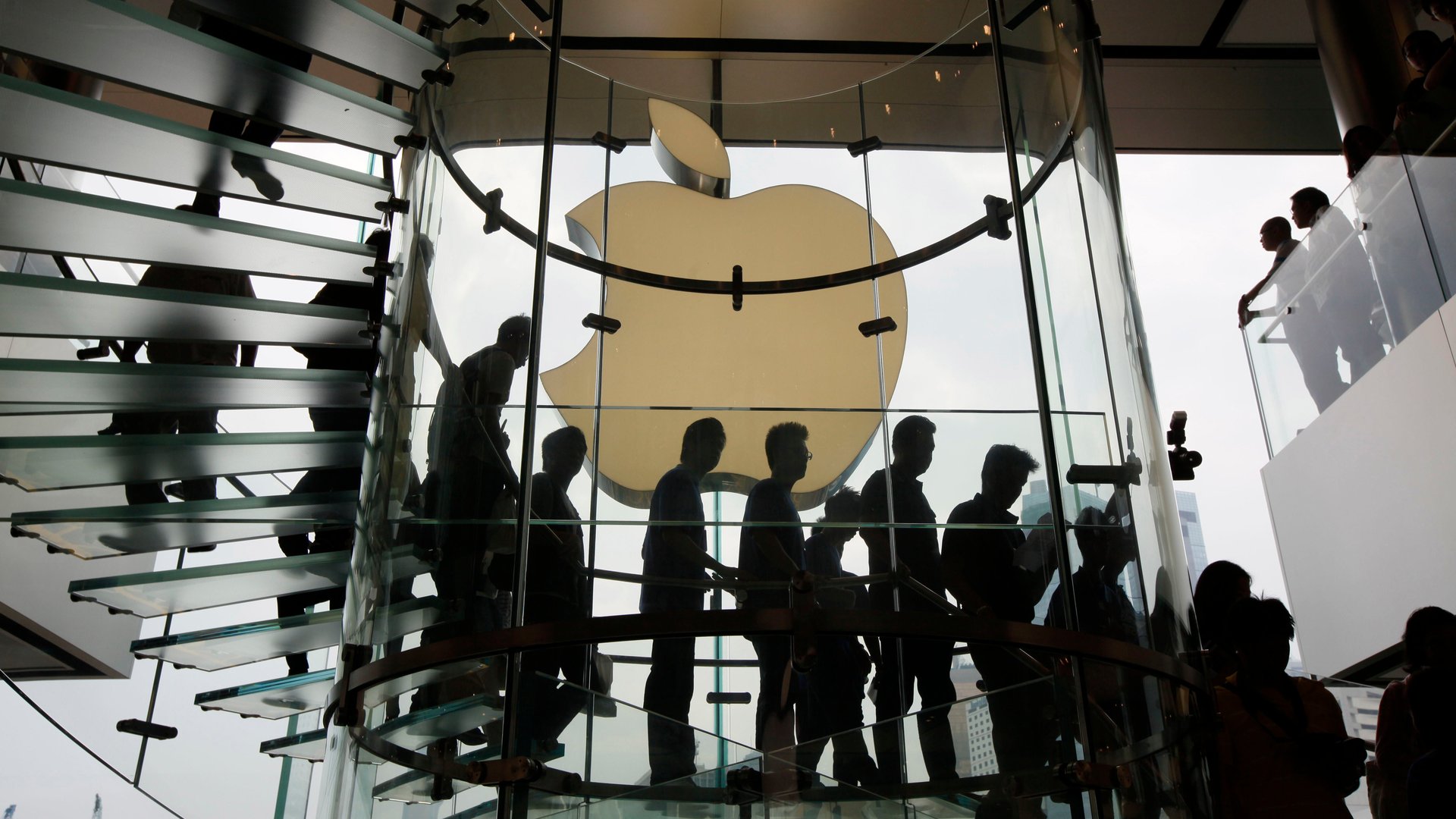Apple fans have click-signed more than 100,000 words of legal contracts
Let’s say, for the sake of argument, that you’re an Apple fan. You’ve got a Mac, an iPhone, an Apple TV, and at least one Airport router. You even bought that overhyped watch. If you own those five devices, and use the software that Apple provides for each, then you’ve agreed at least 30 contracts, totaling more than 100,000 words of legal documentation. That’s longer than either The Hobbit or the first Harry Potter book.


Let’s say, for the sake of argument, that you’re an Apple fan. You’ve got a Mac, an iPhone, an Apple TV, and at least one Airport router. You even bought that overhyped watch. If you own those five devices, and use the software that Apple provides for each, then you’ve agreed at least 30 contracts, totaling more than 100,000 words of legal documentation. That’s longer than either The Hobbit or the first Harry Potter book.
Offline, signing a contract is something we know we should take seriously. You may use lawyers to review the details or read it through carefully yourself. A bad contract can prevent you from getting a refund for shoddy work, or lock you into an paying for a service that you’ve cancelled. You probably file the signed paper away in an old-fashioned filing cabinet.
However, if you’re like most people, you probably don’t read any of the contracts you agree to online, much less save them. You may not even think of those ubiquitous “I agree” buttons as being anything like signing a contract, but legally your click is the same as your signature.
To get a better sense of just how pervasive software contracts have become, Quartz collected data on the most beloved technology company of them all: Apple. We haven’t singled out Apple because their contracts are particularly bad, but rather because they produce so many products and almost every one comes with its own contract.
The legal section of Apple’s website lists more than 100 contracts. They cover everything from the operating system for the Apple Watch to the defunct Cards app for iOS. Most of these contracts say similar things: You don’t own the software. Apple isn’t liable if it fails or blows up. You can’t hack it or change how it works.
However, each contract is also slightly different from the others and, unless you’ve carefully read all of them, you almost certainly aren’t aware of those differences.
The terms for iTunes, for example, allow the company to suspend access to books or music you’ve already paid for. They also stipulate that you can’t burn your iTunes music to a CD more than seven times.
Software can only be used on an “Apple-branded computer.” For example, if you work on a Windows PC or use an Android phone there’s no guarantee that you can read your ebooks there. They’re also not guaranteed to work at all if Apple were ever to go out of business.
Quartz reviewed 100,000 words of Apple legalese, and the company’s contracts are no worse than any other tech company. Tech giants, like Google and Microsoft have contracts that are significantly more wordy and hard to understand. And unlike Amazon, AirBnb, Adobe, Buzzfeed, Microsoft, Instagram, Slack, Tinder and WeChat, Apple does not include a consumer-hostile “binding arbitration” clause, which would block their customers from ever taking them to court.
Let’s say, that after reading this article you decide to read the contracts for your Apple products and stash them in a digital file. That wouldn’t be enough to ensure you really know what you’ve agreed too. At least 15 of Apple’s contracts have been revised in 2016. Most changes are effective immediately, with or without notice. It’s impossible to know how frequently Apple makes changes, because old versions are not kept online. The company did not respond to an email requesting information on how frequently changes are made.
If you count those revisions individually, then Apple fans have probably agreed to several hundred-thousand words of contracts—close to the length of the entire Lord of the Rings series, or a couple volumes of George R. R. Martin’s loquacious Game of Thrones.
And that’s just Apple. Virtually every other tech company follows the same pattern. Long-time internet users could easily have agreed to a million or more words of contracts.
So what is an Apple fan, or any internet user, to do? Most of us would rather sign the contracts than abstain from modern life. It’s important to know, however, that these contracts have an impact. They can demolish your ownership rights or restrict your freedom of speech. Acknowledging their absurdity is an essential first step. Putting pressure on lawmakers and companies to rein in the most blatant abuses of digital contracts may be next.
Quartz is making available the full dataset of Apple contracts created for this story. These data were made by collecting US legal documents from Apple’s site, truncating them to only the English-language pages, and then performing simple page and word counts. No effort was made to standardize font sizes or account for other peculiarities of the source documents. All data is as of Sept. 30, 2016.